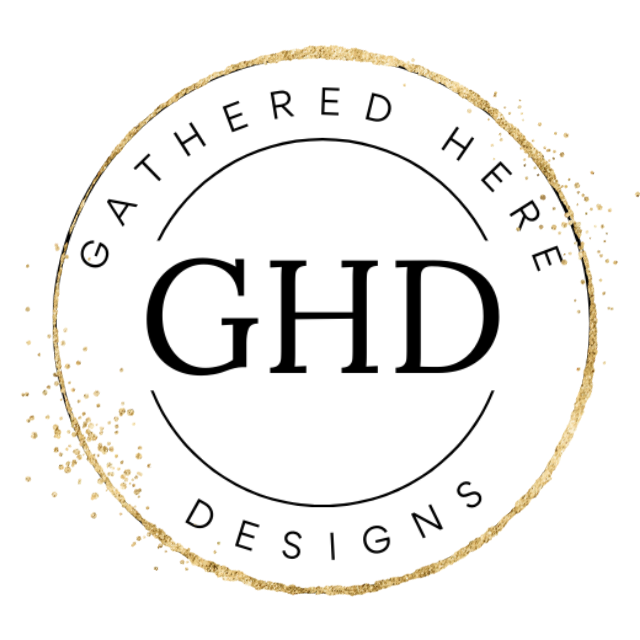Planning, coordinating, designing - OH MY!
Planning a wedding can be overwhelming. Understanding the distinct roles of wedding planners, coordinators, and designers is crucial. In this post, you will discover 3 types of wedding professionals and how they can help support you on your wedding planning journey. You will want to choose the support that aligns with your needs for a seamless wedding experience. #WeddingPlanning #EventCoordination #WeddingDesign #DIYWedding #DIY Bride
When planning a wedding, it can be overwhelming to know where to start. Thankfully, there are all kinds of wedding industry professionals who can help support you through the process.
Now if you’re new to the wedding world, this is where it can start to get a tad confusing.
There are wedding planners, wedding coordinators, and wedding designers. You might be wondering if these are all the same role with different titles or do they each offer something different?
The answer? They are each unique in their own way. While there is some overlap between the roles, they each offer something different to get help get you and your partner from being engaged to living up your wedding day!
Understanding what each role entails can help you decide what type of support best fits your needs. Here’s a breakdown of each type of wedding professional and how they can contribute to your big day.
1. Wedding Planner
A wedding planner is the most comprehensive option for wedding support. They typically work with couples from the very beginning of the planning process until the last guest leaves the reception. A wedding planner’s role typically includes:
Budget Management: Helping you set a realistic budget and keeping you on track.
Vendor Sourcing and Management: Recommending and coordinating with vendors, such as florists, photographers, and caterers.
Timeline Creation: Developing a detailed timeline for the entire wedding.
Logistics: Managing contracts, permits, and any other necessary documentation.
Day-of Coordination: Overseeing the entire event to ensure it runs smoothly.
Wedding planners are ideal for couples who want full-service support or have complex weddings that require detailed logistics. Small caveat: some companies will offer different levels of wedding planning support to allow for high, medium, and low priced options.
2. Wedding Coordinator
A wedding coordinator typically comes into the picture anywhere from 4-8 weeks before the wedding day or just the day of the event, if you purchase a day of coordinator service. Their main role is to ensure that all the plans you’ve made are executed perfectly. Responsibilities of a wedding coordinator tend to include:
Finalizing Details: Reviewing contracts and confirming details with vendors.
Timeline Management: Creating a wedding-day timeline and sharing it with vendors.
Rehearsal Coordination: Managing the rehearsal to ensure everyone knows their roles.
Day-of Execution: Being the point of contact for vendors and guests, troubleshooting any issues that arise, and ensuring the event stays on schedule.
Me circa 2019 doing day-of coordination for a Central Oregon wedding
Wedding coordinators are a great choice for couples who have already done most of the planning, but want professional help on the day to ensure everything runs smoothly. This can be a great option, if you don’t want to have to tag in your family and friends to be the point people on the day of your wedding.
3. Wedding Designer
A wedding designer focuses solely on the aesthetics and atmosphere of the wedding. They are responsible for bringing your vision to life and ensuring the overall look and feel is cohesive. Wedding designers typically handle:
Concept Development: Collaborating with you to create a unique theme or style.
Color Palette and Mood Board: Establishing a color scheme and design inspiration.
Decor and Rentals: Selecting linens, lighting, flowers, furniture, and other decorative elements.
Venue Styling: Ensuring the venue is styled to match your vision.
Woodland Wedding Design I created for a styled photoshoot
Unlike planners or coordinators, wedding designers do not handle logistics or vendor management beyond decor-related vendors. They are ideal for couples who want to create a visually stunning wedding and need creative guidance. If you feel you don’t have a design bone in your body or know you want your wedding to look good, but have no idea how to do it - a wedding designer is a great option for you.
What support does GHD offer?
Gathered Here Designs offers a wedding planning course for those who want to DIY their wedding planning and need a roadmap to help them along the wedding planning journey.
Virtual design services are launching soon! There will be three levels of design services available, depending on how much design support you’re looking for.
Be sure to sign-up for the weekly wedding email so you’re the first to know when services go live!
Choosing the Right Support for You
The type of wedding support you choose depends on your needs, budget, and how hands-on you want to be in the wedding process. Some couples may opt for a full service wedding planner who also offers day-of coordination, while others may only need to hire a designer. No matter what you choose, having professional support can help make your wedding day stress-free and unforgettable.
If you’re unsure which option is right for you, consider your wedding vision and how much time and effort you can dedicate to planning. With the right team in place, your dream wedding can become a reality.





